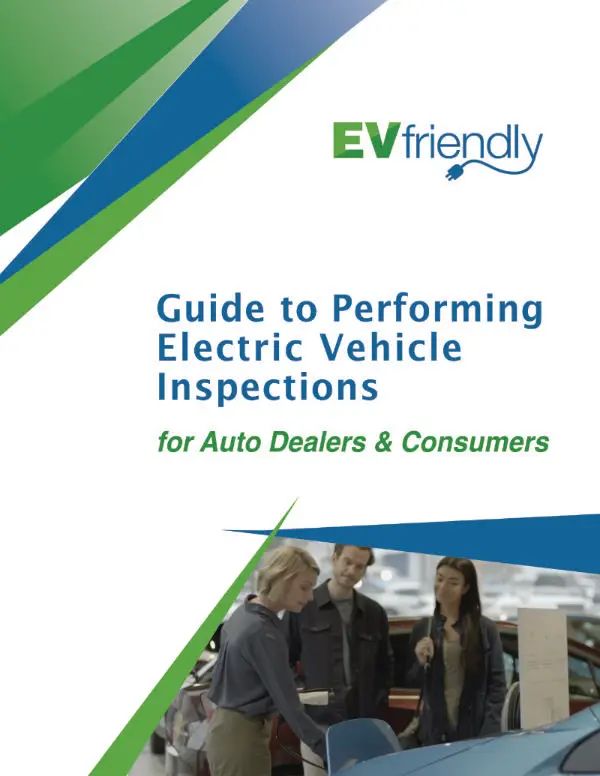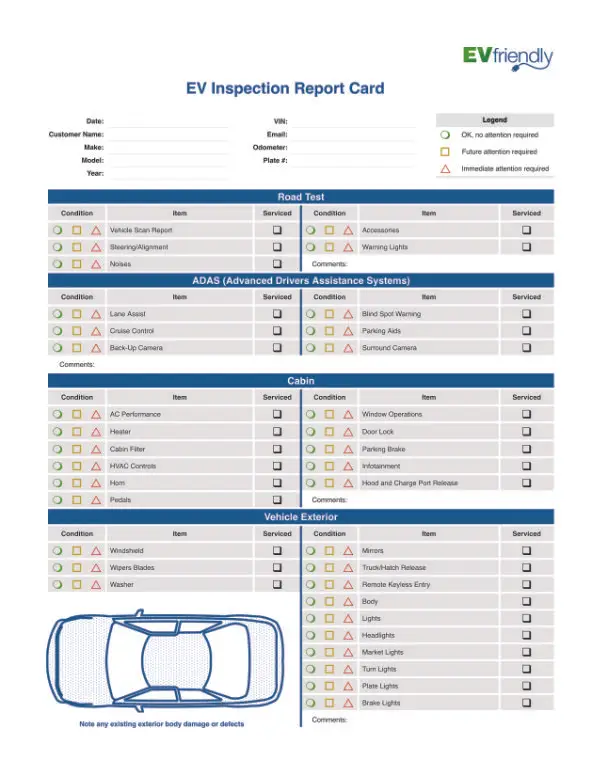EVfriendly Information for Consumers
Frequently Asked Questions:
Are EVs Safe to Drive?
The best way to mitigate risk is to know your vehicle and take precautions.
What Happens to old EV Batteries?
EV good-for-the-planet features don’t end when the battery ages.
How Are EVs Different?
They may look alike, but they have some pretty big differences inside.
How Do I Know What EV is Right For Me?
There’s an electric vehicle out there for everyone. Yes, everyone.
EVs Are New Technology, Right?
Electric vehicles are far from new. Here’s a brief history.
What About EV Maintenance?
Zero emissions does not mean zero maintenance. But it usually means less maintenance.
EVs Can't Go as Far, Right?
Range was one of the most common concerns when it comes to EVs. Is it still a valid?
What's All This New Terminology?
We can’t talk about EVs the same way as we talk about gas powered vehicles.
EVfriendly Inspection Demonstration
A pre-purchase inspection of any used vehicle is critical for determining the quality of the vehicle.
EVfriendly Inspection
Guidebook and Checklist
A pre-purchase inspection of any used vehicle is critical for determining the quality of the vehicle and whether any repairs will be necessary for the vehicle to remain in good service. Performing an inspection on an electric vehicle is very similar to inspecting an internal combustion engine vehicle, with a few additional steps.
The EVfriendly inspection guidebook was designed for dealers conducting pre-sale inspections for their inventory or for consumers who are considering the purchase a used EV and are looking for some assurances that the vehicle is a good investment.
The EVfriendly vehicle inspection checklist is a comprehensive worksheet to be used while performing a vehicle inspection.
Helpful Articles
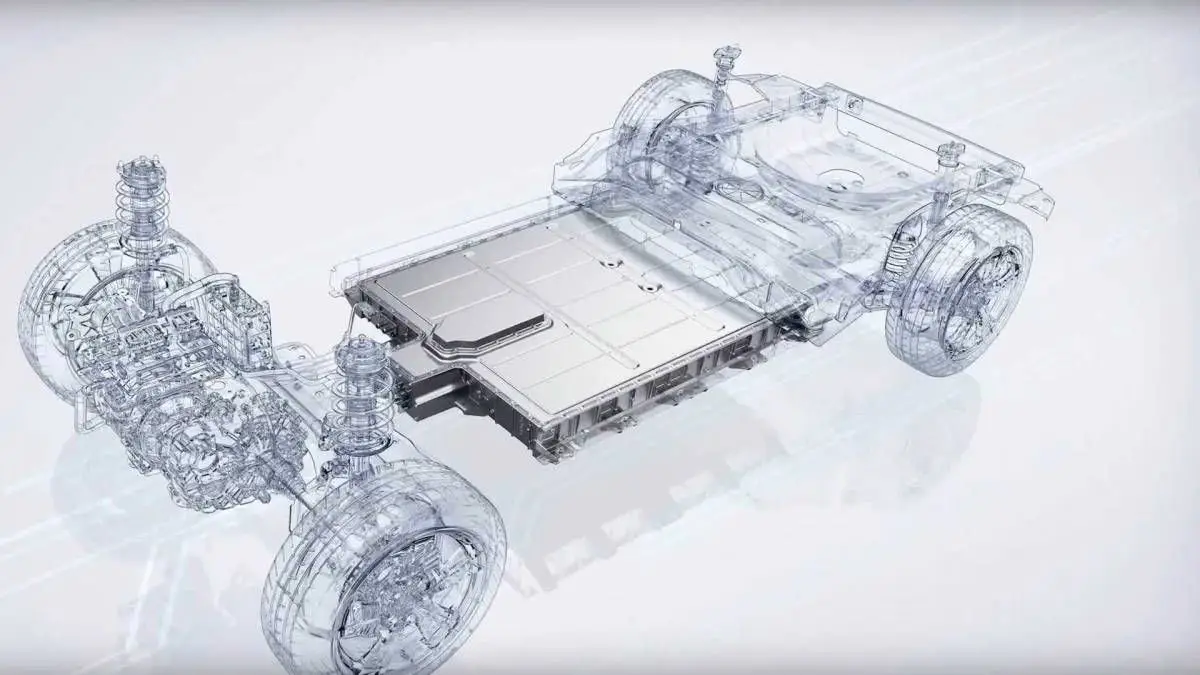
How EVs Work
What is the difference between an EV, a BEV, a BEVx, an HEV, and a PHEV? Understanding how these configurations work may help you choose the one that’s right for you.
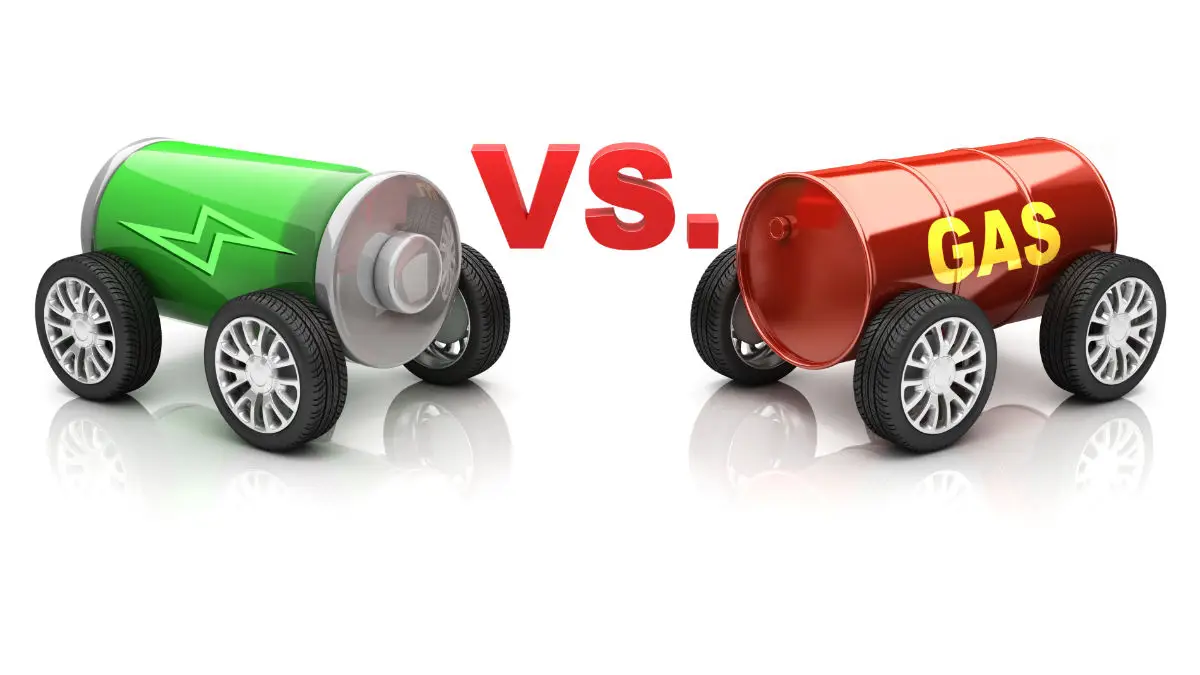
EVs vs. ICEs
The pros and cons of electric vehicles vs. internal combustion engine vehicles. Is there a clear advantage for one over the other? That depends on what’s important to you.
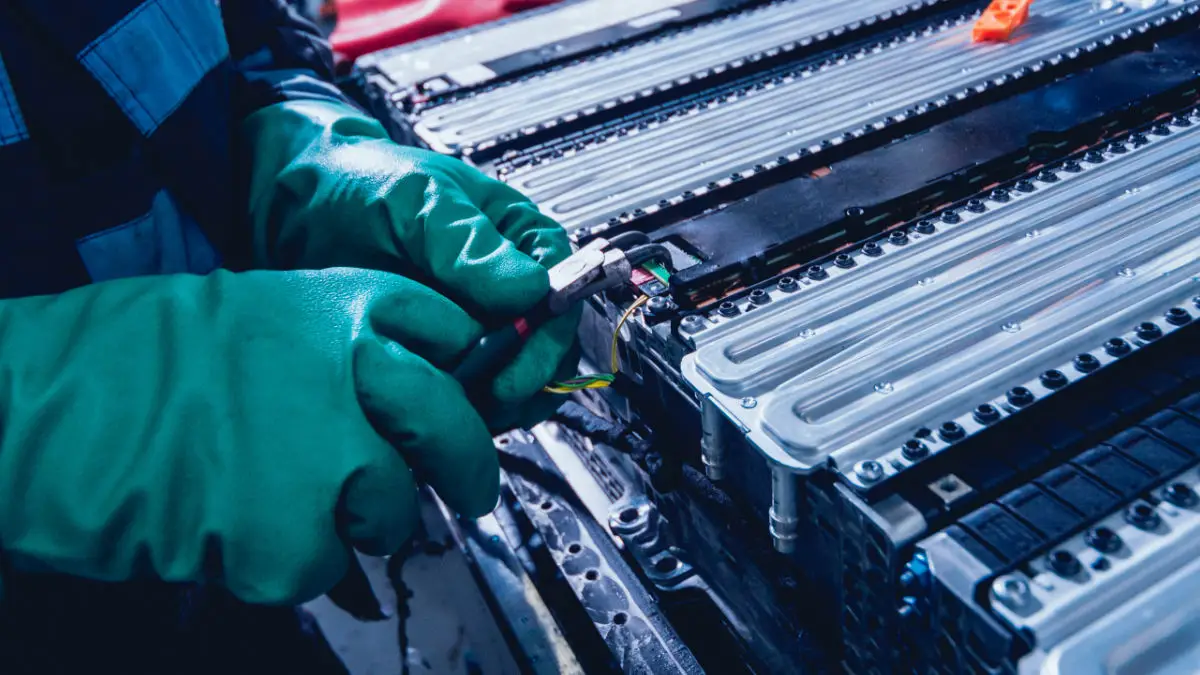
Safety & Maintenance
While EVs have fewer components that require regular maintenance, they are not maintenance-free. And in many respects, EVs are safer to drive than gas-powered vehicles.
Find a Qualified EV Professional
| Name | Company | Address |
|---|---|---|
| Adrian Fitzpatrick | Austin Automotive | 1300 Austin Avenue, Coquitam, BC, (604) 931-2600 |
| Bryan Lai | Advanced Automotive | 5930 No 6 Rd #314, Richmond, BC, (604) 278-1803 |
| Johanson Gamba | Express Lube and Tune | 2840 No. 3 Rd, Richmond, BC, (604) 278-1018 |
| Yanhao Wang (Howard) | Boundary Hyundai | 2395 Boundary Rd, Vancouver, BC, (778) 858-7018 |
| Max de Medeiros | Norland Automotive | 20540 88 Ave #102, Langley, BC, (604) 888-8681 |
| Mitchell Martin | Mitchell's Towing | 1255 Welch St, North Vancouver, BC, (604) 982-0115 |
| Paul Silvestre | Home shop | 33 Blueberry Ave, Kitimat, BC, (250) 639-0797 |
| Rajbir Grewal | Millwoods Suzuki | 3550 97 St NW, Edmonton, AB, (780) 485-5558 |
| Usman Mohammad | A-Canadian Vehicle Inspection | 11964 96 Ave, Delta, BC, (604) 582-3900 |
| Scott Waddle | Precision Auto | 23193 Fraser Hwy, Langley, BC, (604) 530-9394 |
| Matt Wilkie | Precision Auto | 23193 Fraser Hwy, Langley, BC, (604) 530-9394 |
More Frequently Asked Questions:
Our research helped us identify what’s on the minds of consumers with respect to transitioning to electric vehicles.
Here, we answer some of the most common questions and misconceptions:
With proper care and maintenance, an EV’s HV battery can outlast the vehicle itself. Most automakers provide an 8- to 10-year, or 160,000 kilometre warranty on HV batteries. All batteries lose capacity and performance over time. Battery degradation is a natural process that permanently reduces the amount of energy a battery can store, or the amount of power it can deliver. Common factors affecting battery health include age, temperature, state of charge during operation, and more.
The infrastructure of battery charging stations is growing at a pace equal to, or better than, the number of EVs on the road. There are even charging stations located in rest stops along B.C. highways. Many commercial establishments have installed EV charging stations for customers. There should be no concern about depleting your battery “in the middle of nowhere.”
Look for an EVfriendly service provider. This guarantees that the business has invested in the necessary training and equipment and is certified as qualified to offer EV service.
Arguably, EVs are even safer to drive than conventional, gas-powered vehicles. There are many additional safeguards built into them to ensure driver and passenger safety.
EVs have fewer mechanical parts, so they do not require oil changes or tune-ups. The brakes generally last many times longer than those on ICE vehicles, but there are still some items that require periodic maintenance. Most EV owners report much lower maintenance costs, which offsets the initial purchase price, if it is higher than a conventional model.
EVs can use a number of renewable energy sources to charge the HV battery. As more and more EVs are sold and demand increases, manufacturers are developing new, “greener” ways to manufacture batteries. New industries are emerging to recycle batteries. Besides, the supply of fossil fuels is finite, and carries its own environmental issues.
HV batteries can have a second life, even if they have reached the end of their usable lifespan to power an EV. Some HV batteries can be refurbished and reinstalled in an EV. They can also be repurposed as energy storage units for other applications, or they can be sent to a recycling facility where individual elements can be separated and reused in the production of new batteries or other products.
